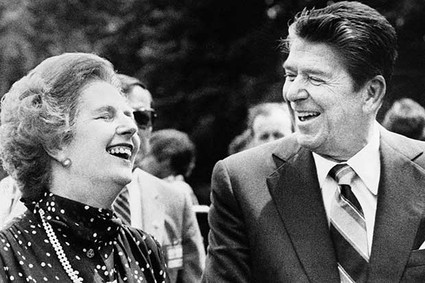 Margaret Thatcher, one of the most iconic women in modern history, passed away due to a stroke on April 8, 2013. She was the first woman to ever hold the position of Prime Minister in Britain and was also the first person to ever be elected to office for three consecutive terms.
Margaret Thatcher, one of the most iconic women in modern history, passed away due to a stroke on April 8, 2013. She was the first woman to ever hold the position of Prime Minister in Britain and was also the first person to ever be elected to office for three consecutive terms.
Thatcher started her career back in the late 50’s where she joined Parliament as a strong conservative member, under the office of Herold MacMillian. She was appointed to junior minister of pensions. In years following, Edward Heath took over the Prime Minister position and Thatcher was appointed to Secretary of Education.
In 1974, Thatcher took her potential to the next level and challenged Edward Heath. To the surprise of many, Thatcher defeated Heath and in the 1979 election, the conservatives won making Margaret Thatcher Prime Minister of Great Britain. In power, Thatcher was focused on “privatizing state-owned industries and utilities, reforming trade unions, lowering taxes and reducing social expenditure across the board,” as stated by the British Broadcasting Channel. She had great success in reducing national inflation, but unemployment was at an all time high during her reign.
The 80’s were a remarkable period, Europe and the rest of the world was in a welter as the Soviets began to look for world domination and countries sought to achieve independence. Thatcher was nearly killed by an explosive device that was planted in the Conservative Party conference building; the bomb was set up by the IRA, which is a terrorist group set up in Northern Ireland which is under control of Britain. During this time Thatcher created a close knit personal and political relationship with President Ronald Reagan, as they worked together during the Cold War to defeat The USSR. Her strong resentment for communism earned her the international nickname “Iron Lady.”
Towards the end of the decade in 1987, Thatcher was voted back in for a th ird consecutive time, but with this came a lot of controversy over newly instated policies. Things such as poll taxes caused the conservative party to form fractions within the government. Thatcher saw this as the beginning of the end for her reign and resigned in 1990.
ird consecutive time, but with this came a lot of controversy over newly instated policies. Things such as poll taxes caused the conservative party to form fractions within the government. Thatcher saw this as the beginning of the end for her reign and resigned in 1990.
After leaving the government scene, she was honored with various titles and achievements. One of the most prestigious was being named a member of the Order of Garter, which is the highest level of knighthood awarded inEngland.






